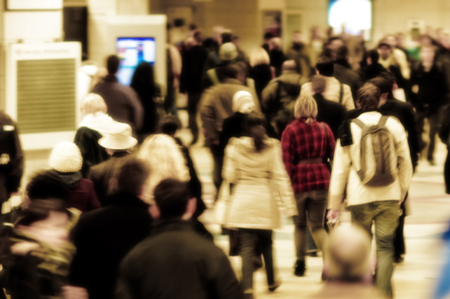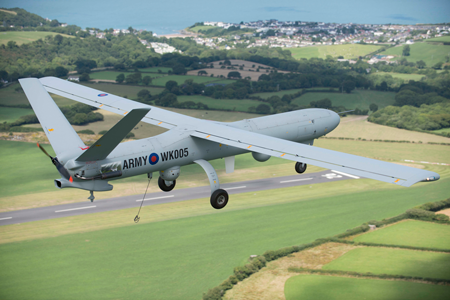How we already rely on artificial intelligence
You may not realise it, but we all rely on artificial intelligence (AI) as we go about our normal daily lives. Let’s take just one example:

AI is used to protect the UK’s rail passengers as they take 1.7 billion journeys (that’s more than 66 billion passenger kilometres) every year. But before we even think about taking a train journey, AI is keeping us safe.
Thales’s Predict and Prevent technology uses a variety of sensors to monitor the real-time performance of more than 42,000 assets on thousands of kilometres of track, and at stations, platforms, signals, bridges, tunnels, crossings, cuttings, embankments and viaducts. That’s a huge amount of data.
Each component that is being monitored has a known profile – how much current it draws in normal use, for example, and the typical length of its operating life. If it displays unusual behaviour this is flagged for investigation.
The system is not used as an alternative to scheduled maintenance and visual inspection, nor does Network Rail wait for components to start failing before they are replaced. Instead, Predict and Prevent uses artificial intelligence to detect early instances of potential failure – long before a human operator can – and allows the most efficient scheduling of preventative maintenance.
Elsewhere, Thales enables the real-time information processing that’s needed to service around three million passenger enquiries every day; the secure payment technology for advance ticket sales, and even the road traffic information systems that keep you informed about congestion, delays and diversion en route to the station.
Right here. Right now. Everyday applications for AI
The railway is just one area in which we rely on artificial intelligence and big data computing techniques for convenience, efficiency and safety. The truth is, AI is everywhere. It keeps air travel safe and nuclear power stations reliable. Banks use it to detect fraud.
Predictive text on our phones is possible thanks to artificial intelligence. Voice-controlled digital assistants like SIRI and Alexa use it. And every time you ask a question on Google, AI brings you relevant results. As a technology that was unthinkable a couple of decades ago, artificial intelligence has quietly evolved from being aspirational to commonplace to being truly indispensable.
It’s not just a question of convenience and safety, either. Artificial intelligence empowers autonomous machines to perform tasks which are dirty, dull or dangerous, adjusting their behaviour and responses - in a predictable manner - to external stimuli, in a dynamically changing environment.

The British army uses Thales’s Watchkeeper unmanned air vehicle to protect our troops. Watchkeeper can loiter unseen over an area of interest for 16+ hours at a time - automatically taking off, flying there and back, and landing - capturing and transmitting real-time information about threats on the ground.
At an Unmanned Warrior event, hosted by the Royal Navy, Thales demonstrated how an Unmanned Surface Vehicle, launched from a ship or the shore, can tow a sonar array and detect and report underwater mines, following a predetermined search grid.
An Unmanned Underwater Vehicle can navigate to predetermined coordinates - perhaps to examine deep sea cable - recording information as it goes, returning to base when the mission has been completed.
A glimpse of the future
Artificial Intelligence, coupled with the powerful processing and huge data stores that we now have, is excellent at recognising patterns and extracting information that would otherwise be hidden form human eyes.
Computers never get bored and never get distracted. And they can process huge amounts of information extremely quickly, extracting the information that humans need to know. And when quantum computing becomes reality, a new world of opportunities will open up.
We already have driverless trains. And we are seeing steady progress towards driverless cars, lorries and buses. In the not-too-distant future you can expect to see pilotless passenger aircraft.
Right here and right now - silently, dependably and often unseen – we are all relying on artificial intelligence to improve decision-making, save lives and make the world a safer, cleaner and more convivial for us all.